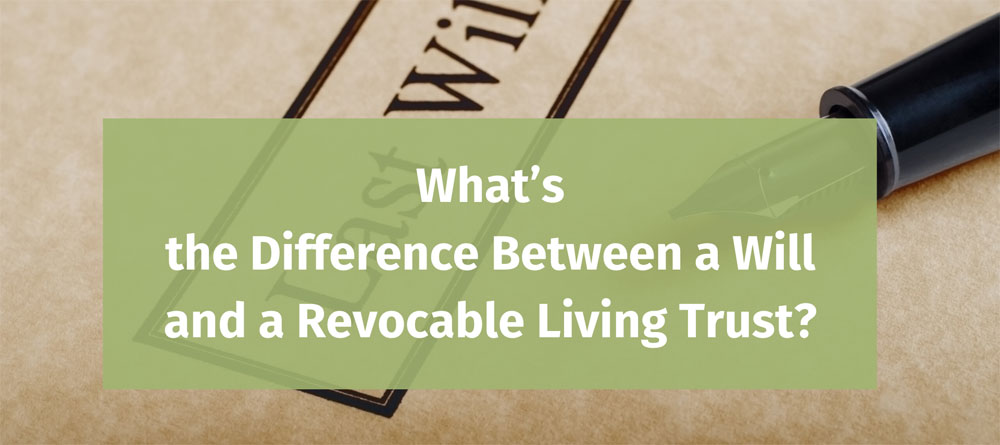
A WILL is a document you create to specify how you wish your estate to be managed and distributed after you die. A Will enables you to select your heirs rather than leaving it up to the courts and your state’s “intestate succession” laws to choose for you.
A Will also allows you to select an individual who can serve as the executor of your estate—someone you trust to safeguard your rights after you’re gone, such as your right to select an individual to serve as guardian to raise your young children in the event of your death, and your right to give direction over the handling of assets your beneficiaries will receive.
A Will, however, does not govern all aspects of how your estate is handled after your death. A Will places many of those decisions in the hands of a judge who will preside over your estate transfers in probate court, which can sometimes take months to sort out with resulting additional attorney fees and court costs.
A REVOCABLE LIVING TRUST is a legal document that indicates exactly what your desires are concerning your assets, your dependents, and your heirs. A living trust bypasses the costly and time-consuming process of probate.
In your trust, you will name a “Successor Trustee,” who you give authority to distribute your trust assets according to your instructions, which will be clearly documented, as though you were the one making the decisions. The Successor Trustee performs this function at the time of your death or before then if you’re unable to manage your financial, healthcare, or legal affairs due to some form of incapacity.
One of the primary reasons for creating a living revocable trust is to avoid probate court and associated costs.
Investopedia states that a living trust is so named because it is created while the asset owner is alive. It is called “revocable” because it can be changed or revoked by the asset owner during his or her lifetime.
Unlike a will, a living trust passes property to heirs outside of probate court. This means transfers are made immediately to named beneficiaries and there are no court or attorney fees involved.
Which Should I Have—a Will or a Revocable Living Trust?
The answer to which option is best for you depends on several factors, including the value and nature of your assets, the upfront costs you wish to pay for an estate plan, whether you have an individual you trust to be named as a personal representative, and your ability to follow through with your estate plan during your lifetime.
Got Questions? Looking for Guidance?
James Legal Group can meet with you free of charge, in a setting of your choosing, to assist you in finding the most appropriate estate planning approach to meet your needs.
